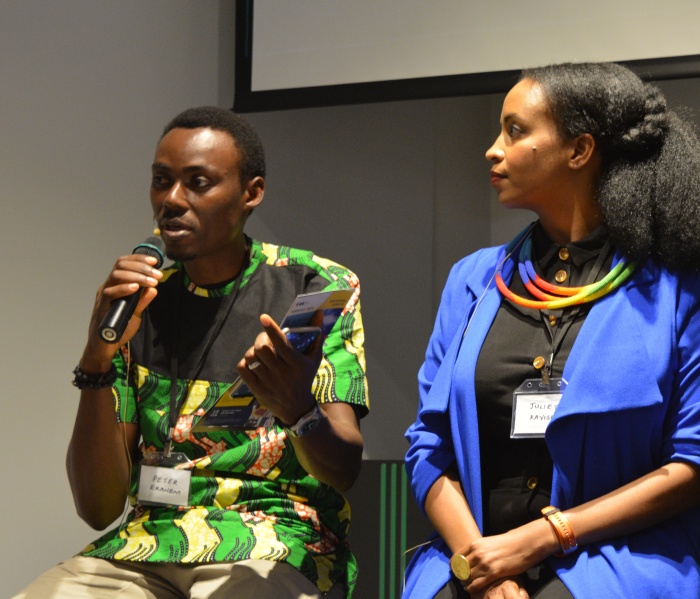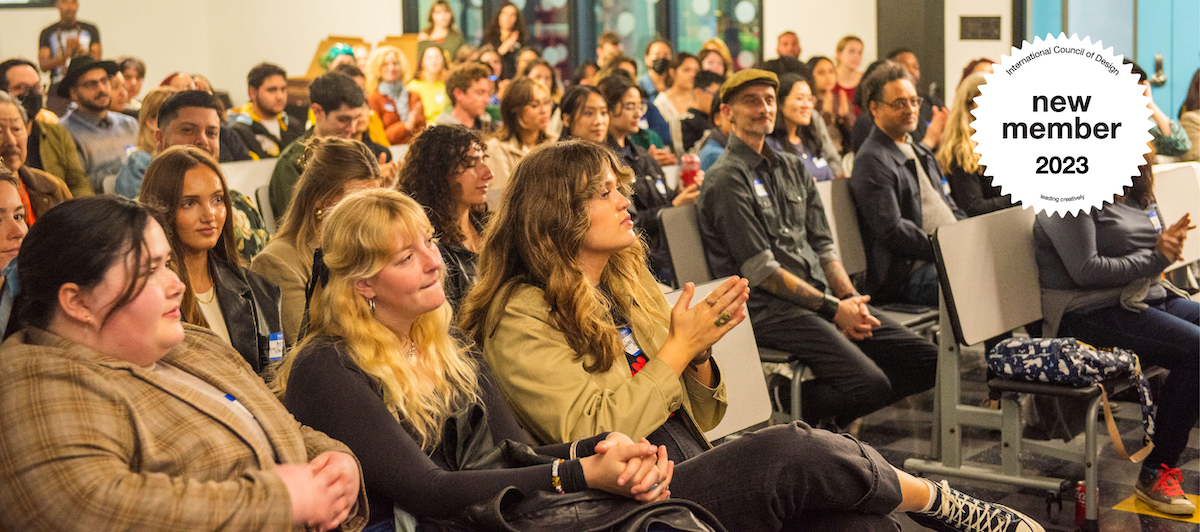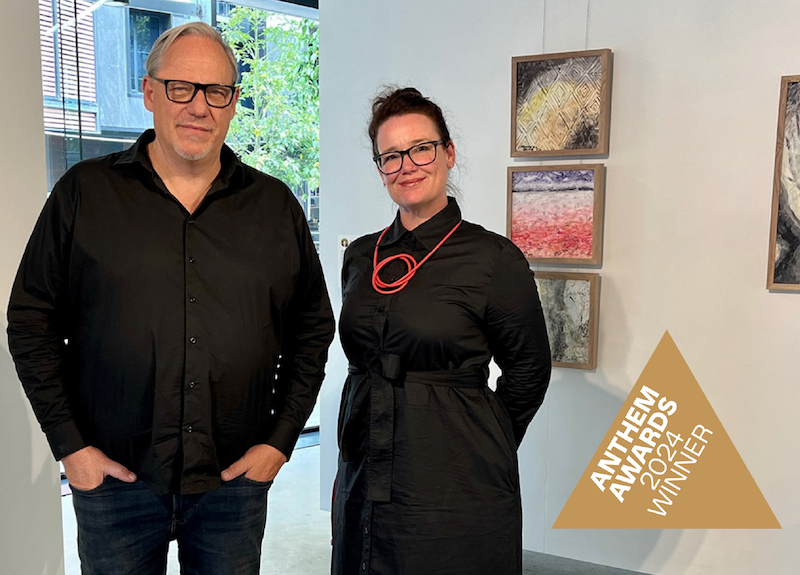design education issues from africa

26.07.2021 Member news
On 29 June 2021, ICoD participated in Afrocentric Design: Practice and Curriculum, ADEC (Afrika Design Education Conference 2021) organised by the Pan Afrikan Design Institute (PADI). The conference explored possible futures for design education bringing together academics, practitioners, creatives and interest parties in a series of round table discussions to reflect and share what Afrocentric design means.
The conference was attended by Gugu Motlanthe, former First Lady of South Africa, Johnathon Strebly, President of the International Council of Design, Felix Ofori Dartey, President of the Pan Afrikan Design Institute (PADI), Des Laubscher, Former President of PADI as well as PADI Executive Board Members. According to Felix Ofori Dartey, President/COO, Pan Afrikan Design Institute (PADI), “the Pan Afrikan Design Institute (PADI) Afrika Design Education Conference (ADEC) 2021 was the first in a series of conferences planned to help shape the future of Design Education in Afrika in developing Afrocentric curriculum heavily rooted in cultural/local indigenous knowledge with empathy and design thinking among many other principles to train the next generation of Afrikan Innovators, Policymakers and Designers who will lead and develop the continent.” For clarification for international Members on the spelling of Africa with a "k", Dartey explains: "The 1500 major languages in Afrika all spell Afrika with a 'K'. And since we are trying to educate our people about the essence of design and design thinking in our everyday life, we think in order to effectively communicate to them, we should spell it with a 'K' so it syncs and again makes it easier for the uneducated and the semi-educated easily comprehend our messages."
 Image captionPan Afrikan Design Institute (PADI) Afrika Design Education Conference (ADEC) 2021 was a virtual event 22-24, 29 June 2021.
Image captionPan Afrikan Design Institute (PADI) Afrika Design Education Conference (ADEC) 2021 was a virtual event 22-24, 29 June 2021.
PADI’s work in the design community is extensive and follows a philosophy of “One People, One Design: Ubuntu”. While the definitions of “Ubuntu” vary, it generally means “humanity” and “I am, because you are.” It comes from the Zula phrase “Umuntu ngumuntu ngabantu”, meaning being oneself through others, carrying with it the philosophy of community and its ensuing responsibilities towards others, where upholding social justice, joy, love, solidarity, compassion, etc. is considered what is central to being human, always “you and me both.” PADI’s goal is infuse all design practice and education with these principles, “to stand as a unified body to empower design professionals and facilitate growth in Afrikan design industries, as well as promoting design education as an essential profession required for the 21st Century”. With Ubuntu and “Afrocentricity” as the central ethos shared by its membership—a collective of individual designers, educators, industry leads, and national design associations representing a range of design disciplines—the need for a decolonised approach to African design education is critical to its goal for better futures. The Afrika First Design Manifesto (conceived by PADI for their members) speaks to the oppression of colonial rule and its varied legacies across African countries today, making solidarity all the more urgent. The Manifesto outlines similar aspirations to the PADI 2021conference: to protect, through design, the rights and flourishing of all Africans and their natural environments.
 Felix Ofori Dartey, President/COO, Pan Afrikan Design Institute (PADI)
Felix Ofori Dartey, President/COO, Pan Afrikan Design Institute (PADI)
 Robin Turner, design lecturer at Greenside Design Center, and PADI Board Member, Sam Nii Adjaidoo in discussion during PADI events in 2019, Johannesburg, South Africa.
Robin Turner, design lecturer at Greenside Design Center, and PADI Board Member, Sam Nii Adjaidoo in discussion during PADI events in 2019, Johannesburg, South Africa.
In the context of the PADI 2021conference, participant and Board Member, Sam Nii Adjaidoo speaks to the concept of Afrocentricity as shared philosophy and best practice:
Afrocentricity is Ubuntu. The Future of Design education in Afrika will be the development of Afro-innovative leaders. Tomorrow’s Afrikan designer will approach ‘wicked problems’ with a cultural response rooted in compassion for humanity and propelled by Afrika’s cultural diversity and global assertiveness. The future Afrikan design curriculum and pedagogy will empower designers to be creatively confident in the Afrikan identity and heritage. The Afrikan designer of tomorrow will, from the continent’s creative values, write new ‘Afro-beats’- innovations leavened by the love to empower the Afrikan and to make this world a better place for all - Ubuntu.
 Sam Nii Adjaidoo being interviewed by ICoD during PADI events in 2019, Johannesburg, South Africa
Sam Nii Adjaidoo being interviewed by ICoD during PADI events in 2019, Johannesburg, South Africa Professor Lilac Asanjo, Director of Department of Arts & Design at the University of Nairobi was among the ADEC participants.
Professor Lilac Asanjo, Director of Department of Arts & Design at the University of Nairobi was among the ADEC participants.
A recap of the talks and proceedings, moderated by Board Member Kyesubìre Greigg, can be viewed here.
The conference address was given by activist Mrs. Gugu Motlanthe, former First Lady of South Africa and current Executive Trustee in the Kgalema Motlanthe Foundation and Patron of the Pan Afrikan Design Institute (PADI). She stressed that education is the vehicle through which Africa will develop a united voice in the face of interdependent issues spanning all African countries:
My approach is to focus on our education system and look at conforming and creativity. The Afrocentric design curriculum should not be a choice between obtaining an outdated qualification but rather using African knowledge to advance our productive and creative energies to provide possibilities for us to keep up with the kaleidoscopic change in the world.
Formerly based in the African National Congress (ANC) headquarters (pre-democracy and post-democracy in South Africa), Gugu Motlanthe served under three democratic Presidents, commencing with President Nelson Mandela. She began her professional career in the design sector and works today as an activist for youth, women, the disabled on issues of ethical leadership, emancipation and food security. Her intersectional analysis is central to the Afrocentric design education programme:
In defining the purpose of Afrocentric design, she asks, will the curriculum permit students to come into contact with real issues, our whole African culture, passing through custom, through the law, through the efforts of labour unions, and management, through the attitudes of parents and teachers, who at times are deeply committed to outdated systems that do not address challenges in our societies? The curriculum must deal with deep seated trends in education and reverse them so that young people earn a living, create wealth, contribute to science and deal with all issues in the design process or process of learning.
 Gugu Motlanthe, former First Lady of South Africa
Gugu Motlanthe, former First Lady of South Africa
Asking educators to turn their attention to the vast capacity of Afrocentricity in education—that can resist colonial systems—she urges designers to build a society “based on justice, equality, and human rights for all to create a free, democratic, non-racial, non-sexist and economically booming Africa.”
Des Laubscher, Former President of PADI provided a comment:
In Africa we are claiming our Afrocentricity at last and we are starting to understand the rich indigenous design we have on our Continent. From our roots we celebrate our artefacts, our social systems, our cultural significance, our symbolism and our communities through the message of ubuntu “I am, because you are”. Design plays a significant role here and we are ready to succeed as a collective.
To conclude, Felix Ofori Dartey’s describes Afrocentricity as a ‘Sankofa' Movement, not unlike design movements such as Art Deco, Art Nouveau, and Bauhaus among many others. ‘Sankofa’ is a Ghanaian Akan word meaning ‘renaissance’. He reminds designers that, aside from renowned the Egyptian hieroglyphs, there are many other cultural art and design ‘movements' in Africa which have helped shape the modern design knowledge of today: the Ashantis of Ghana with their Adinkra symbology, the Igbo of Nigeria with Nsibidi symbology, the Ndebele people of South Africa with Ndebele symbology, to mention a few, are all design movements in Africa that were designed and developed by the tribes to help them communicate, decorate and develop their communities: “These design movements are till been used by the communities but they have not as yet got into modern design knowledge which is heavily dominated by European ideas. In my opinion these indigenous design movements together with the universal design knowledge form what I will consider as Afrocentric Design Knowledge/Culture.”
ICoD was honored to be part of this important regional event and supports the movement of Afrocentricity in design education as a critical global innovation.

relatedarticles

new member | college of design and innovation (D&I) at tongji university (china)

new member | AIGA san diego tijuana

deakin university wins a gold anthem award in NYC for perpetual pigments project

new member | escuela superior politecnica del litoral (ESPOL) (ecuador)
